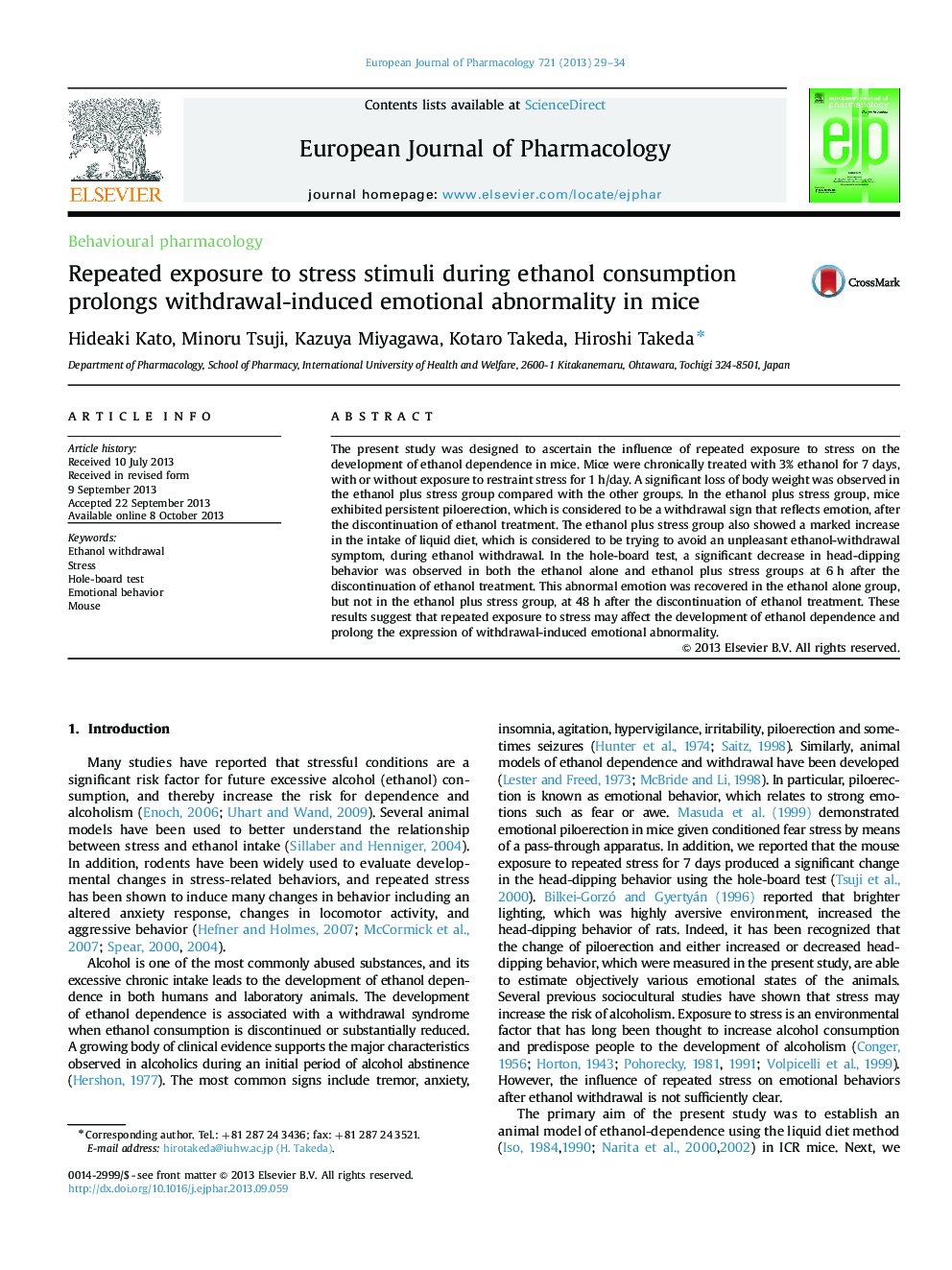| Article ID | Journal | Published Year | Pages | File Type |
|---|---|---|---|---|
| 5828166 | European Journal of Pharmacology | 2013 | 6 Pages |
The present study was designed to ascertain the influence of repeated exposure to stress on the development of ethanol dependence in mice. Mice were chronically treated with 3% ethanol for 7 days, with or without exposure to restraint stress for 1Â h/day. A significant loss of body weight was observed in the ethanol plus stress group compared with the other groups. In the ethanol plus stress group, mice exhibited persistent piloerection, which is considered to be a withdrawal sign that reflects emotion, after the discontinuation of ethanol treatment. The ethanol plus stress group also showed a marked increase in the intake of liquid diet, which is considered to be trying to avoid an unpleasant ethanol-withdrawal symptom, during ethanol withdrawal. In the hole-board test, a significant decrease in head-dipping behavior was observed in both the ethanol alone and ethanol plus stress groups at 6Â h after the discontinuation of ethanol treatment. This abnormal emotion was recovered in the ethanol alone group, but not in the ethanol plus stress group, at 48Â h after the discontinuation of ethanol treatment. These results suggest that repeated exposure to stress may affect the development of ethanol dependence and prolong the expression of withdrawal-induced emotional abnormality.
